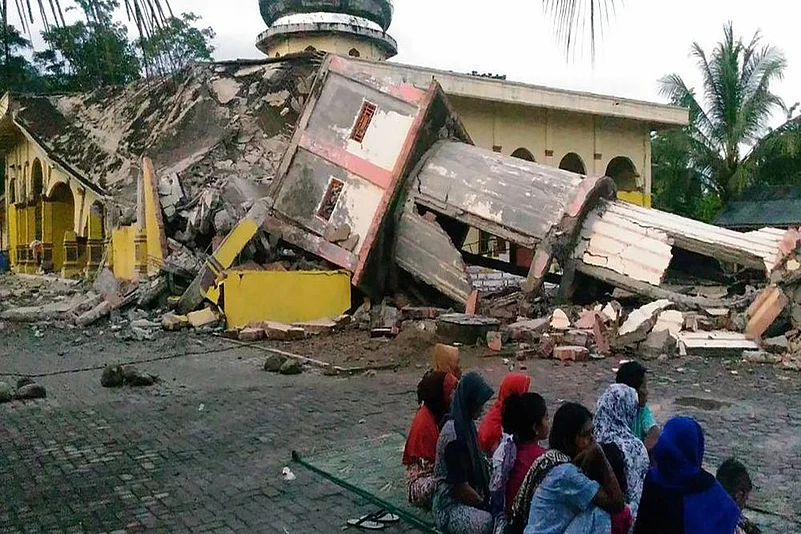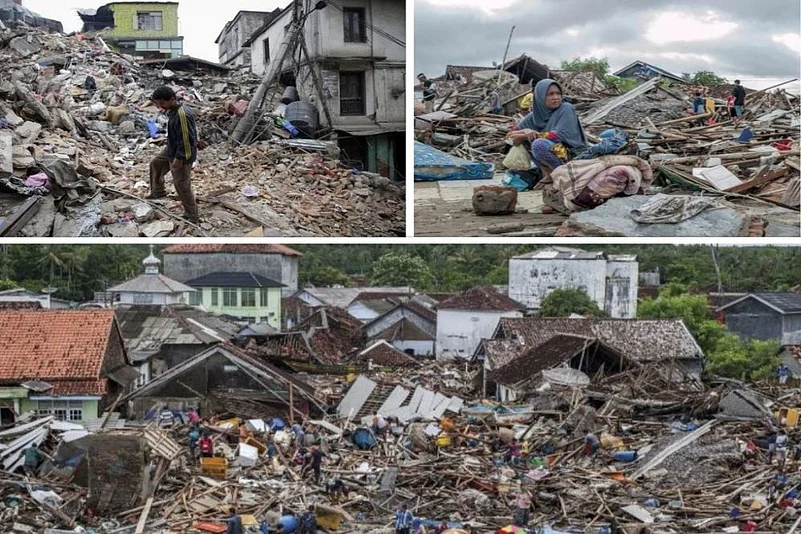The Tsunami triggered by a volcanic eruption that struck Indonesia on Saturday night was the latest in the series of major disasters that rocked the natives of Indonesia in the last few years.
Because of its geographic location along the Pacific Ring of Fire, the country has suffered from hundreds of natural disasters. Whether its Earthquakes, Volcanic eruptions or Tsunamis, people of Indonesia has seen it all.
Here are the major natural disasters that struck Indonesia in the past few years.
The Indian Ocean Earthquake that occurred on December 26, 2004, was the third-biggest since 1990. Marked 9.1 on the Richter Scale, the literal earth-shaking event killed about a 1,68,000 people in Indonesia alone. The episode lasted for ten whole minutes, which was more than enough for it to destroy homes and injure an uncountable number of people. The earthquake also gave rise to an uncontrollable tsunami across the Indian Ocean, which was bound to happen with the never-seen-before tragic earthquake.

Image Credit: AP Photos
In 2005, a series of strong quakes hit the western coast of Sumatra in late March and early April. Hundreds died in Nias Island, off the coast of Sumatra.
On May 26, 2006, Indonesia succumbed to another natural tragedy which killed off 6,000 people. Injuring more than 35,000 people, the Richter Scale recorded a quake of 6.3 magnitudes, which shouldn't have caused as much damage as it did. Studies show that the area where the earthquake occurred was underlain by thick volcanic deposits, and that is what caused the calamity.
The same year, another 6.8 magnitude quake hit south of Java, Indonesia‘s most populated island, triggering a tsunami that smashed into the southern coast, killing nearly 700 people.

Image Credit: Boston
In 2009, a 7.6 magnitude quake struck near the city of Padang, capital of West Sumatra province. More than 1,100 people were killed.
In 2010, a major earthquake 7.5 magnitude quake hit one of the Mentawai islands, off Sumatra, triggering a tsunami of up to 10 meters that destroyed dozens of villages and killed around 300 people.
In 2016, a 6.5 magnitude earthquake hit the Pidie Jaya regency in Aceh, causing destruction and panic as people were reminded by the devastation of the deadly 2004 quake and tsunami. No tsunami was triggered, but more than 100 were killed by fallen buildings.
And, the year 2018 added more to it.

Image Credit: AP Photos
More than 500 people died when an earthquake devastated the tourist island of Lombok near in Bali on August 5. The island had already been hit by a 6.4 magnitude quake on 29 July that killed 17 people.
On 28 September 2018, a magnitude 7.5 earthquake struck Indonesia’s Central Sulawesi province, triggering a tsunami and landslides that caused widespread destruction and loss of life. More than 2,000 people are known to have died and 4,400 are seriously injured, according to the Indonesia disaster management agency. About 1.5 million people in Central Sulawesi are likely affected. With about 68,000 houses damaged or destroyed, hundreds of thousands of people are still displaced.
On December 23, a tsunami following a volcanic eruption killed at least 168 in Indonesia’s Sunda Strait. More than 168 people died and scores were declared missing in the disaster at the time this story was filed.
Indonesia, which is the world's largest island country and located between the Indian and the Pacific Ocean, regularly faces the hardship of many natural disasters, including earthquakes, tsunamis, and volcanic eruptions.
On average, at least one major natural disaster has occurred in Indonesia every month since the 2004 tsunami, including earthquakes, tsunamis, volcanic eruptions and events caused by climate change.
Why is Indonesia prone to natural disasters?
Indonesia is prone to earthquakes because it's on the Ring of Fire, an arc of volcanoes and fault lines in the basin of the Pacific Ocean. The area shaped like a shoe spans 40,000 kilometers (25,000 miles) and is where a majority of the world's earthquakes occur.

























